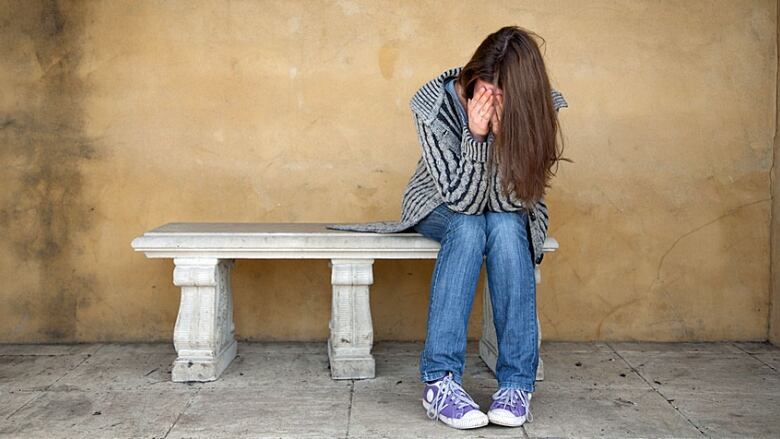First-aid course offered for mental illness in Winnipeg
1 in 3 Canadians will experience a mental health problem, Mental Health First Aid Canada says

When someone falls on the street and is injured, people in the community are likely to have been trained in first aid and will jump into action until paramedics can arrive. But what happens if that person is having a mental health crisis?
The growing trend of mental health first aid training is on its way to Winnipeg.
- Canadian Red Cross to incorporate mental health into first aid training
- Manitoba starts work on developing mental health strategy
Saskatoon-based Bridges Health is holding mental health first aid training sessions on Tuesday and Wednesday in the city.

"What they do is they provide help and support to individuals that are experiencing a mental health problem or who are actually in distress until appropriate treatment is found or until the crisis is resolved."
Mental health first aid originated in Australia in 2001 to improve the mental health literacy of the community so people aren't afraid to respond to mental health emergencies. Since, the program has been adopted in 18 countries including in Canada in 2010.
One in three Canadians will experience a mental health problem at some point in their life, according to Mental Health First Aid Canada.
"That is a significant amount of individuals," Breland said.
The mental health first aid training explains common mental health problems and gives people a five-step action plan to respond called ALGEE:
Approach, assess and assist with any crisis
Listen non-judgmentally
Give support and information
Encourage appropriate professional help
Encourage other supports
"It is actually giving us a language. It's giving us a foundation where we can actually confidently have conversations with individuals that we are seeing maybe are struggling at first or at, the other end of it, are really in distress and really need to have different supports activated them in a very serious manner," Breland said.
'They are scared'
The training course helps people recognize signs of mental health problems and know where to go for help. Breland said their training is workplace-specific and they've seen that organizations, particularly managers, feel like they don't have the tools to address mental health needs so they just don't.
"They are avoiding the conversation. They are scared based on the stigma, based on some discrimination," she said.
"So what we focus on in the two days is how to engage in that conversation. What are the steps that one can take to prepare and what are the steps that one can engage in the conversation?"
- Mental-health services haven't matched demand, Manitoba minister says
- Beyond the bandage: First-aid course offered for mental illness
Following training, Breland said many people approach her to say they feel a weight has been lifted knowing that they aren't expected to have all the answers when a mental health crisis arises. She said just talking about mental health first aid helps people want to engage in conversations around mental health in general.
Mental health first aid training is becoming much more common, the Canadian Red Cross began integrating it into its national training programs last year.
While Bridges Health has only been offering trainingsince 2016, Breland, a clinical social worker by trade, said there's been an increasing awareness around the impacts of mental health at home and at work.
"We are starting to see a drastic shift," she said.
For information on Winnipeg training sessions visit the Bridges Health website.












_(720p).jpg)


 OFFICIAL HD MUSIC VIDEO.jpg)
.jpg)



























































































